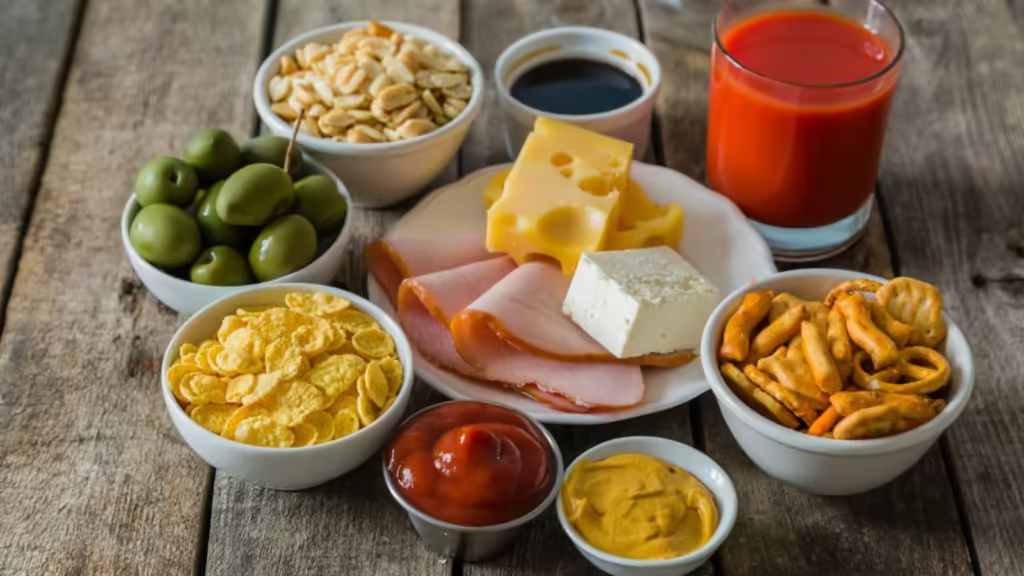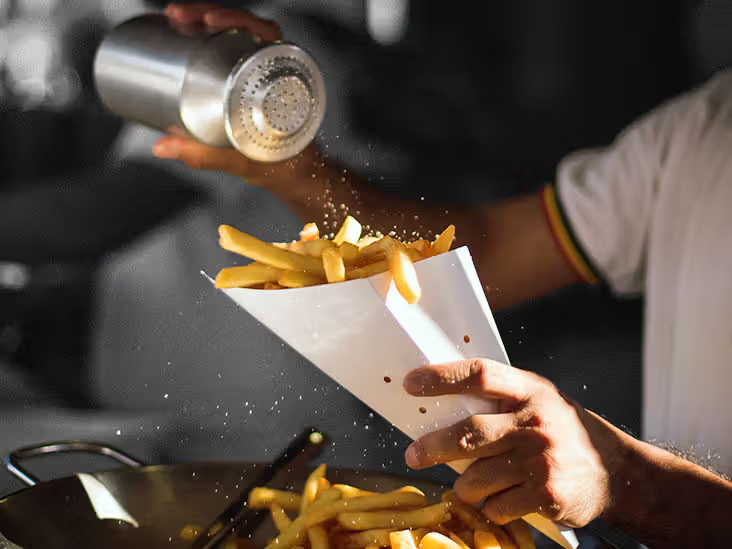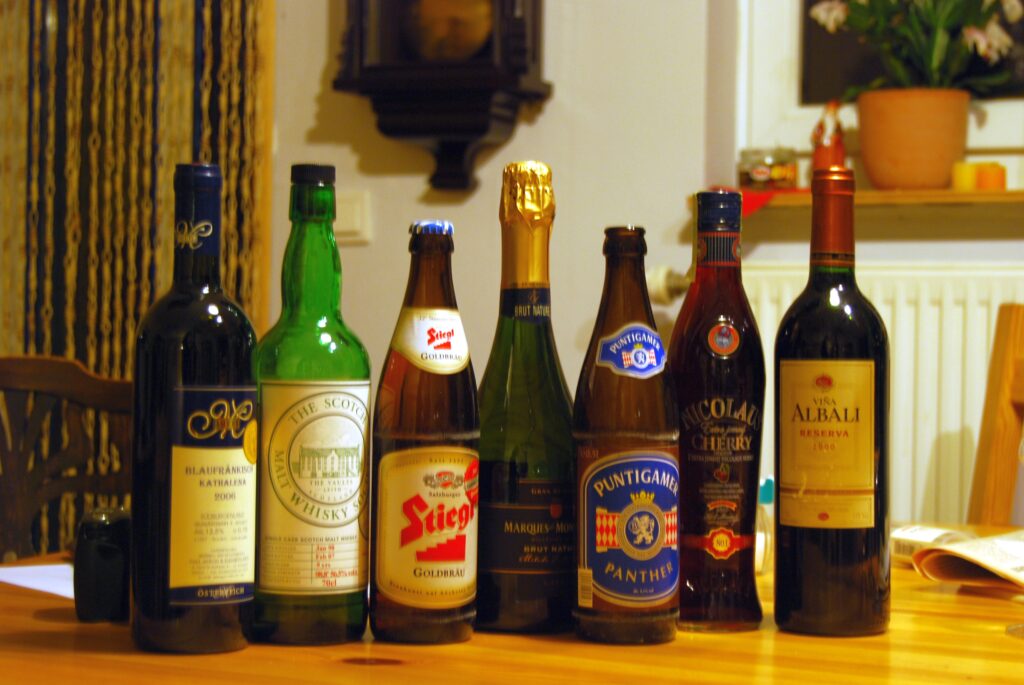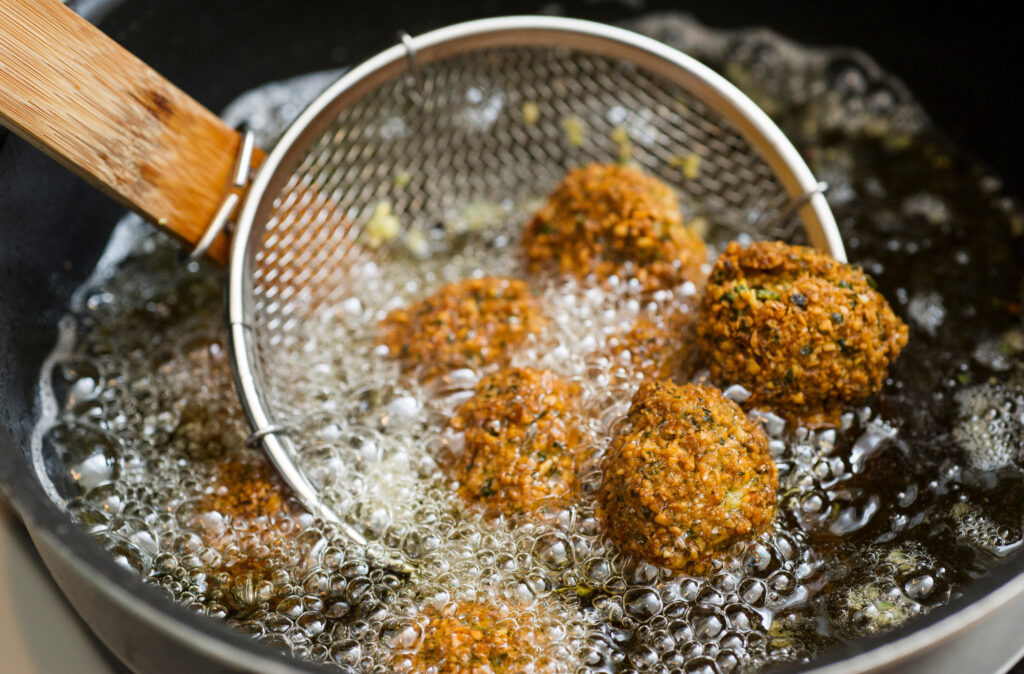Foods That May Worsen the Symptoms of Varicose Veins
Varicose veins are enlarged, twisted veins that often appear on the legs and feet due to poor circulation. They can cause discomfort, pain, and swelling, and while several factors contribute to their development, diet plays a crucial role in managing the symptoms. Certain foods can exacerbate the discomfort associated with varicose veins, leading to increased inflammation, poor blood circulation, and even more vein damage.Foods That May Worsen the Symptoms of Varicose Veins.
Understanding the relationship between diet and varicose veins can empower individuals to make better choices, promoting healthier veins and reducing symptoms. This article highlights foods that may worsen varicose vein symptoms and provides insights into healthier dietary alternatives.
1. Processed and Fast Foods
Fast food and highly processed foods are rich in unhealthy fats, refined sugars, and sodium, all of which can contribute to poor blood circulation. These foods tend to increase cholesterol levels and blood pressure, which negatively affect the veins’ ability to transport blood effectively. Additionally, the high sodium content in these foods leads to water retention, causing swelling in the legs and aggravating varicose veins.
Better Alternatives: Opt for whole foods such as lean meats, fish, vegetables, and whole grains. These promote better circulation and support vein health.

2. Foods High in Salt (Sodium)
High-sodium foods contribute significantly to water retention, which can increase the pressure on your veins. When the body holds onto excess water, it causes swelling in the lower extremities, worsening varicose vein symptoms like aching and throbbing. Processed meats (e.g., bacon, sausages), canned soups, and salty snacks (e.g., chips, pretzels) are common culprits.
Better Alternatives: Reduce sodium intake by seasoning foods with herbs and spices instead of salt. Choose low-sodium versions of processed foods, and incorporate more fresh fruits and vegetables into your meals.

3. Refined Carbohydrates and Sugars
Refined carbohydrates like white bread, pastries, and sugary snacks can lead to weight gain, which is one of the major risk factors for varicose veins. Carrying excess weight puts additional pressure on your legs, worsening the symptoms. Refined sugars also promote inflammation, which can damage the vein walls over time and lead to poor circulation.
Better Alternatives: Choose complex carbohydrates such as whole grains, oats, and brown rice, and limit your intake of sugary foods. Fruits like berries and apples can satisfy your sweet tooth while also providing antioxidants that support vascular health.
4. Alcohol
Excessive alcohol consumption can lead to dehydration and poor circulation. Alcohol causes blood vessels to dilate, which can increase blood pooling in the veins and make varicose veins more prominent. Additionally, heavy drinking may lead to liver issues, which can impact blood flow and further aggravate varicose vein symptoms.
Better Alternatives: Moderation is key. Limit alcohol intake and ensure proper hydration by drinking plenty of water. Herbal teas and infused water with lemon or cucumber are good alternatives to alcohol.

5. Caffeinated Beverages
Caffeine, found in coffee, tea, and some energy drinks, can dehydrate the body, making the blood thicker and reducing its flow through the veins. Dehydration also exacerbates swelling in the lower extremities, increasing pressure on varicose veins. Additionally, caffeine can lead to constriction of blood vessels, worsening circulation issues.
Better Alternatives: While small amounts of caffeine are generally fine, aim to stay hydrated with water or caffeine-free herbal teas. Try switching to decaffeinated beverages or incorporating drinks like green tea, which contains antioxidants but has less caffeine.
6. Fried Foods
Fried foods like French fries, fried chicken, and doughnuts contain trans fats, which are harmful to the cardiovascular system. These fats increase cholesterol levels and promote inflammation, leading to damaged veins and poor blood flow. Furthermore, fried foods often contribute to weight gain, exacerbating varicose vein symptoms.
Better Alternatives: Baking, grilling, or steaming foods instead of frying them is a healthier choice. Opt for foods cooked in healthy fats like olive oil or avocado oil, which support vascular health.

7. Red Meat
Red meat is high in saturated fats, which can clog arteries and hinder blood flow. Regular consumption of fatty cuts of meat such as beef, lamb, and pork can elevate cholesterol levels and contribute to inflammation, worsening varicose veins. The strain on the circulatory system makes it harder for blood to return from the legs to the heart, aggravating the condition.
Better Alternatives: Choose lean proteins like chicken, turkey, fish, or plant-based options such as lentils, beans, and tofu. These options are lower in saturated fats and promote better circulation.
8. Dairy Products
High-fat dairy products like cheese, butter, and cream are loaded with saturated fats, which can increase cholesterol levels and contribute to poor circulation. These foods can also promote inflammation, making varicose vein symptoms worse. Additionally, dairy can cause constipation in some individuals, and straining during bowel movements can put extra pressure on the veins, particularly in the lower extremities.
Better Alternatives: Opt for low-fat or fat-free versions of dairy products, or try plant-based alternatives like almond milk, soy milk, or vegan cheese, which tend to have less saturated fat.
9. Sugary Drinks
Sugary drinks like soda, sweetened iced tea, and energy drinks are packed with refined sugars and empty calories. These drinks contribute to weight gain and inflammation, both of which are risk factors for worsening varicose veins. The high sugar content can also cause spikes in blood sugar, leading to further circulation issues.
Better Alternatives: Choose water, unsweetened tea, or sparkling water with a splash of lemon or lime for flavor. These beverages keep you hydrated and are much healthier for your veins.
10. White Flour Products
White flour-based products like white bread, pastries, and crackers lack fiber, which is essential for digestive health. A diet low in fiber can lead to constipation, and straining during bowel movements can put pressure on the veins, especially in the lower body. This pressure can worsen varicose veins over time.
Better Alternatives: Replace white flour products with whole grain alternatives such as whole wheat bread, brown rice, and quinoa. These foods are high in fiber and promote better digestion and circulation.
FAQs
1. Can diet alone cure varicose veins?
No, diet alone cannot cure varicose veins. However, a healthy diet can help manage symptoms, prevent worsening, and support overall vascular health. For treatment, consult a healthcare provider.
2. How does salt intake affect varicose veins?
High salt intake leads to water retention, which increases pressure on the veins and causes swelling in the legs, worsening varicose vein symptoms.
3. Is caffeine bad for varicose veins?
Excessive caffeine consumption can dehydrate the body and constrict blood vessels, both of which can worsen varicose vein symptoms. Moderation and proper hydration are key.
4. What role does alcohol play in varicose veins?
Alcohol can cause blood vessels to dilate and increase blood pooling in the veins, making varicose veins more prominent. Heavy alcohol consumption can also lead to liver issues that affect circulation.
5. Are there any foods that can improve varicose veins?
Yes, foods rich in fiber, antioxidants, and omega-3 fatty acids, such as fruits, vegetables, nuts, seeds, and fatty fish, can promote better circulation and reduce inflammation, supporting vein health.
6. Can weight loss help with varicose veins?
Yes, losing weight can reduce the pressure on your veins, improve circulation, and alleviate varicose vein symptoms.
Conclusion:
Managing varicose vein symptoms involves making healthy lifestyle choices, particularly regarding diet. Avoiding foods high in sodium, refined sugars, unhealthy fats, and processed ingredients can alleviate pressure on your veins and reduce discomfort. By incorporating fiber-rich, nutrient-dense foods and staying hydrated, you can improve circulation and support your vein health over time.staying hydrated, you can improve circulation and support your vein health over time.
A Product That Help in Varicose Veins Is Varicosure



